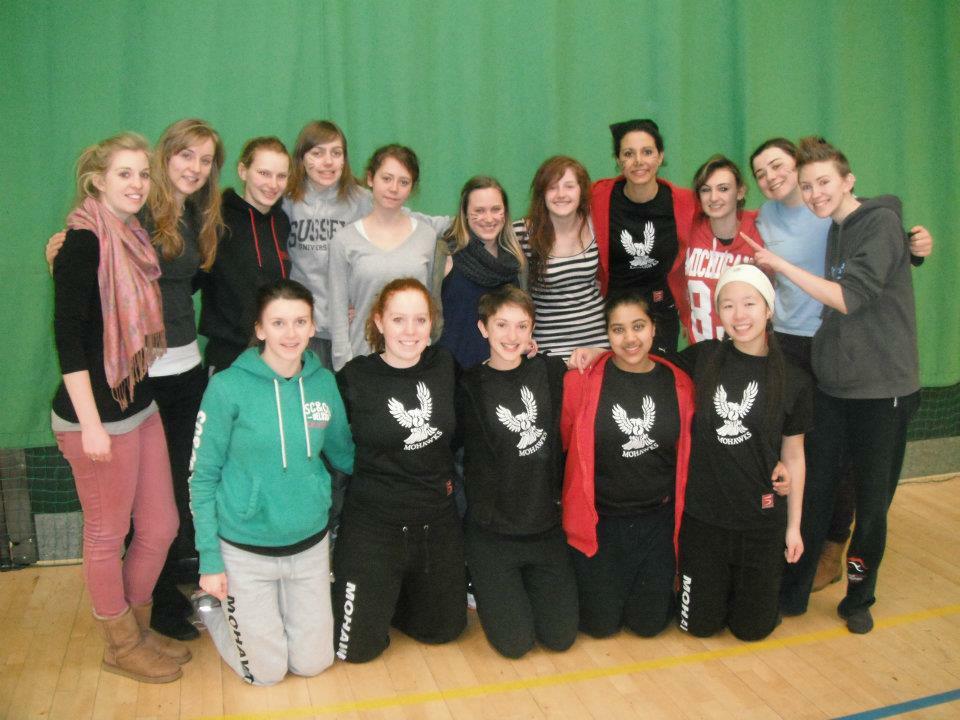The Paga (driving) experience
These are my thoughts on my Paganello 2012 experience. I hope they are of interest, many apologies if you think they might be and then read them and get thoroughly bored.
When Callum first suggested driving to Paga I was apprehensive, not just the actual driving part but because it was Callum who was asking. I trust Callum with everything but he will be the first to admit that at times he is not the most organised and on occasion doesn’t come up trumps. My nervousness was, therefore, because I thought that he might not sort all the stuff that he said he would do in time. He did and I will eternally grateful for him being the backbone of one of the best trips of my life.
Cycling to Burla (in September 2010) is still, in my opinion, a better journey and sense of achievement than driving to Paga this time but I can now proudly say that I have braved Italian drivers in an automobile which I am dead chuffed about. The driving itself turned out to be fairly effortless – having James (Horsfield aka Jizzy) as a navigator and general entertainer made life for Callum and me far easier. We made one slight wrong turn in Italy – the signs for Piacenza simply vanished – but otherwise driving along the French motorways were enjoyable, followed by zipping along some Swiss made roads and finally across Italy to Rimini.
The single thing that made the trip extra tolerable was our Swiss stop-off with Callum’s Aunt and family. We were treated (on the way to Italy) to raclette (melted cheese over potato – wonderful) and then (on the way back) to the best tasting veal and accompaniments that I can ever remember. Callum’s uncle (Dan), a butcher, proudly told us that he had not only cooked the dinner but picked out the calf and slaughtered it himself! This might make some people uncomfortable but seeing how proud Dan was with this made the choice of seconds or not an absolute no-brainer: I needed more food.
Paganello itself was, as ever, the best tournament I will ever go to. I had fun with my team and other (roughly) Brighton based people, played some ultimate and am proud of my personal party efforts…
Thursday night is, if you don’t know, the free red wine night. I had a few and ended up, apparently, in pretty much the fetal position behind the stands trying to stop the world spinning around me. I was eventually taken back to our flat (luckily a 4 or 5 minute walk away) and put to bed. Friday morning was tough but what made it easier was hearing that Frank was nearly taken in an ambulance but was sorted out by Ashley turning up and, in Jesus style, telling Frank to get up and walk home – a task he achieved without fuss.
Friday came and went. For Mohawks it was a late start and only two games (against the weakest two in our pool) so not too tough on the legs. I, for one, was delighted by this as my body was not completely ready. The evening was quiet to say the least and just one pint after a couple of flat based beers was plenty for me.
Saturday was an altogether different kettle of fish – four games for me plus Shocker got to play twice in the arena! We won our first (which was important to play up, rather than down) and very nearly got to seven-all against SeXXXpensive (who ended runners up) which impressed us plenty. The party that evening was good fun although I am disappointed with how scared Ultimate players are with gentle moshing, and I am sure John Maule will agree with me. It wasn’t particularly hardcore moshing but people looked terrified and so an awkward circle formed around us.
The best thing, however, to come out of Saturday was a question as to me, Therapist, by Selina. I was sitting next to her in the stands watching Shocker where upon she turned to me and said:
“Do you have a nickname?”
I was stunned into silence. After a while she realised her most catastrophic of mistakes and said:
“Oh of course. I sometimes think ‘Rapo’ is your real name”
Thank you, Selina, for reducing me to tears.
I’m sure most of you are bored of reading this by now, so I will stop very soon, I promise.
Sunday brought wind to Rimini. Wind to the extent that games were postponed for two hours! Eventually we played and lost in a very passive match but then we had the game of our lives in an up-wind, down-wind, extravaganza. Our opponents won the toss and by all accounts thoughts that that was going to be enough to win the match but little did they know the might of Callum, Shimmy, Kneetu, Frank & Ash (who played the first (and majority of) up-wind point(s), if memory serves) and, although Mohawks were one-nil down it took our opponents about 12 attempts to score, and Mohawks got oh so close. This set the tone of the game up perfectly – we put our down-wind offense in on our second or (at most) third attempt and then did battle again. They scored again but after a long slog, we then comfortably tied it up at two a piece, Then we got our breakthrough. Absolutely fantastic offense, a time out called followed by an IO break from Frank to Ash – we’d got the break and with it, effectively won the match! (We scored another up-wind point at the end, too, winning the game 5-2).
Monday is as Monday does. We lost our final game and then, I for one, got nicely tipsy in the stands watching the finals. If you get the opportunity then watch the mixed final! An absolutely incredible match, I won’t give the score away for those not in the know but definitely worth getting to see if you possibly can!
So, as a summary… The biggest comparison from this year and last is the driving rather than flying, obviously. It was different, obviously, and I did miss the horrific train ride from Bologna but obviously took two days to arrive rather than the 6 hours or so for the flyers amongst us, but did eat like Swiss royalty (if they’ve any) on the layover.
I cannot thank my driving companions Callum and James enough for keeping me awake and entertained during what could have been a journey filled with awkward silences and misery. You guys were both fantastic all the way to and from Paganello, and I almost long for squeezing back into the Micra and just sitting there for the day.
I guess there is only one question that remains… Would I do it all again?
Yes.
In a heartbeat.


